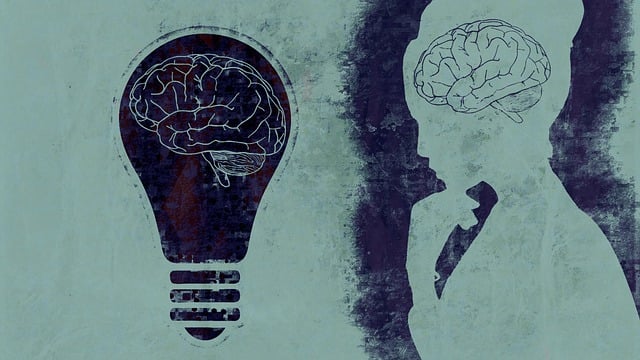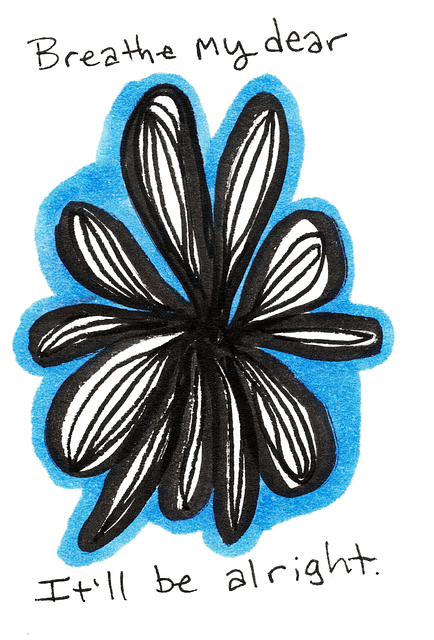Castle Rock Sexual Addiction Therapy emphasizes recognizing and preventing depression through a holistic approach. Key signs include persistent sadness, loss of interest, changes in appetite, sleep issues, fatigue, concentration difficulties, worthlessness, and suicidal thoughts. Effective strategies promoted by the therapy include mindfulness exercises, journaling, physical activity, meditation, deep breathing, setting boundaries, and prioritizing self-care. A healthy lifestyle with regular exercise, quality sleep, and balanced nutrition is crucial. Tailored therapy options like CBT in a supportive environment, along with cultural sensitivity and mental wellness journaling, address underlying sexual behavior issues contributing to depression, offering proactive self-care strategies for effective prevention and management.
Depression is a prevalent yet profound mental health challenge, affecting millions worldwide. This article explores effective prevention strategies to empower individuals in their battle against depression. We delve into recognizing subtle signs and symptoms, emphasizing the significance of early intervention. Additionally, we uncover lifestyle modifications proven to bolster mental well-being, including exercise, mindfulness, and social connections. For those seeking deeper support, we explore Castle Rock Sexual Addiction Therapy and other professional treatment options, highlighting their role in fostering resilience and recovery.
- Recognizing the Signs and Symptoms of Depression
- Lifestyle Changes for Improved Mental Health
- Professional Support and Therapy Options
Recognizing the Signs and Symptoms of Depression

Recognizing the signs and symptoms of depression is a crucial step in preventing its onset or managing it effectively. It often manifests as a persistent feeling of sadness, loss of interest, or pleasure in activities once enjoyed. Individuals may experience changes in appetite, sleep disturbances, fatigue, difficulty concentrating, feelings of worthlessness, and recurrent thoughts of death or suicide. These signs can vary from person to person, but Castle Rock Sexual Addiction Therapy highlights the importance of paying attention to any significant shifts in mood and behavior.
The process involves increasing self-awareness through exercises that promote mindfulness and reflection. This may include keeping a journal to track emotions, engaging in regular physical activity, and adopting stress reduction methods like meditation or deep breathing exercises. Additionally, burnout prevention techniques such as setting healthy boundaries and prioritizing self-care can play a significant role in maintaining mental well-being. By recognizing the early signs and implementing these strategies, individuals can take proactive steps towards preventing depression and fostering a healthier mind.
Lifestyle Changes for Improved Mental Health

Adopting a healthy lifestyle plays a pivotal role in preventing and managing depression. Regular physical activity, for instance, releases endorphins that boost mood and reduce stress. Aiming for at least 30 minutes of moderate exercise most days can significantly improve mental health. Additionally, prioritizing quality sleep and maintaining a balanced diet are essential. Adequate rest allows the brain to rejuvenate while proper nutrition supports emotional healing processes.
Incorporating mindfulness meditation into daily routines can also be transformative. This practice encourages individuals to focus on the present moment, thereby reducing rumination on past traumas or anxieties about the future. Castle Rock Sexual Addiction Therapy, among other trauma support services, emphasizes the interconnectedness of physical and emotional well-being. By addressing underlying issues and fostering healthy coping mechanisms, these therapeutic approaches contribute to a holistic approach to mental health, empowering individuals to navigate life’s challenges more effectively.
Professional Support and Therapy Options

Depression prevention often involves seeking professional support and exploring various therapy options tailored to individual needs. Castle Rock Sexual Addiction Therapy, for instance, focuses on addressing underlying issues related to sexual behavior, which can be a contributing factor to depression, especially when coupled with guilt or shame. This specialized approach leverages evidence-based techniques like cognitive-behavioral therapy (CBT) to help individuals process and overcome their struggles in a safe, supportive environment.
Professional therapists not only provide crisis intervention guidance but also incorporate cultural sensitivity in mental healthcare practice, ensuring that treatment plans are respectful and adaptable to diverse backgrounds. In addition, they may encourage mental wellness journaling exercise guidance, which can be a powerful tool for self-reflection, emotional regulation, and tracking progress over time. This holistic approach combines targeted therapy with proactive self-care strategies to prevent and manage depression effectively.
In addressing depression prevention, recognizing signs early, adopting healthy lifestyle changes, and seeking professional support through options like Castle Rock Sexual Addiction Therapy are key steps towards fostering robust mental health. By integrating these strategies into daily life, individuals can effectively navigate challenges and promote overall well-being.










